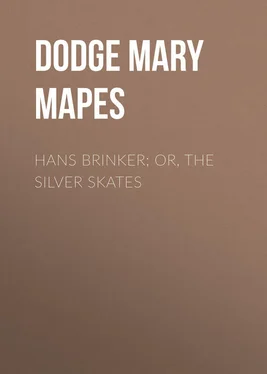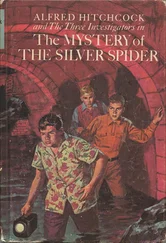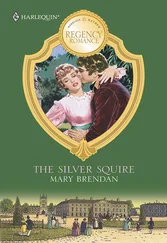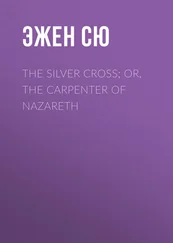Mary Dodge - Hans Brinker; Or, The Silver Skates
Здесь есть возможность читать онлайн «Mary Dodge - Hans Brinker; Or, The Silver Skates» — ознакомительный отрывок электронной книги совершенно бесплатно, а после прочтения отрывка купить полную версию. В некоторых случаях можно слушать аудио, скачать через торрент в формате fb2 и присутствует краткое содержание. Жанр: foreign_antique, foreign_prose, на английском языке. Описание произведения, (предисловие) а так же отзывы посетителей доступны на портале библиотеки ЛибКат.
- Название:Hans Brinker; Or, The Silver Skates
- Автор:
- Жанр:
- Год:неизвестен
- ISBN:нет данных
- Рейтинг книги:4 / 5. Голосов: 1
-
Избранное:Добавить в избранное
- Отзывы:
-
Ваша оценка:
- 80
- 1
- 2
- 3
- 4
- 5
Hans Brinker; Or, The Silver Skates: краткое содержание, описание и аннотация
Предлагаем к чтению аннотацию, описание, краткое содержание или предисловие (зависит от того, что написал сам автор книги «Hans Brinker; Or, The Silver Skates»). Если вы не нашли необходимую информацию о книге — напишите в комментариях, мы постараемся отыскать её.
Hans Brinker; Or, The Silver Skates — читать онлайн ознакомительный отрывок
Ниже представлен текст книги, разбитый по страницам. Система сохранения места последней прочитанной страницы, позволяет с удобством читать онлайн бесплатно книгу «Hans Brinker; Or, The Silver Skates», без необходимости каждый раз заново искать на чём Вы остановились. Поставьте закладку, и сможете в любой момент перейти на страницу, на которой закончили чтение.
Интервал:
Закладка:
"'Oh, Lord, let me obtain this from Thee
To live with patience, and to die with pleasure!' 17 17 O Heere! laat my dat van uwen hand verwerven, Te leven met gedult, en met vermaak te sterven.
"Did patience mean folding his hands? No, he was a lawyer, statesman, ambassador, farmer, philosopher, historian, and poet. He was keeper of the Great Seal of Holland! He was a – Bah! there is too much noise here, I cannot talk" – and Mynheer, looking with astonishment into the bowl of his meerschaum – for it had "gone out" – nodded to his vrouw and left the apartment in great haste.
The fact is, his discourse had been accompanied throughout with a subdued chorus of barking dogs, squeaking cats and bleating lambs, to say nothing of a noisy ivory cricket, that the baby was whirling with infinite delight. At the last, little Huygens taking advantage of the increasing loudness of Mynheer's tones, had ventured a blast on his new trumpet, and Wolfert had hastily attempted an accompaniment on the drum. This had brought matters to a crisis, and well for the little creatures that it had. The saint had left no ticket for them to attend a lecture on Jacob Cats. It was not an appointed part of the ceremonies. Therefore when the youngsters saw that the mother looked neither frightened nor offended, they gathered new courage. The grand chorus rose triumphant, and frolic and joy reigned supreme.
Good Saint Nicholas! For the sake of the young Hollanders, I, for one, am willing to acknowledge him, and defend his reality against all unbelievers.
Carl Schummel was quite busy during that day, assuring little children, confidentially, that not Saint Nicholas, but their own fathers and mothers had produced the oracle and loaded the tables. But we know better than that.
And yet if this were a saint, why did he not visit the Brinker cottage that night? Why was that one home, so dark and sorrowful, passed by?
X
WHAT THE BOYS SAW AND DID IN AMSTERDAM
"Are we all here?" cried Peter, in high glee, as the party assembled upon the canal early the next morning, equipped for their skating journey. "Let me see. As Jacob has made me captain, I must call the roll. Carl Schummel – You here?"
"Ya!"
"Jacob Poot!"
"Ya!"
"Benjamin Dobbs!"
"Ya-a!"
"Lambert van Mounen!"
"Ya!"
"[That's lucky! Couldn't get on without you , as you're the only one who can speak English.] Ludwig van Holp!"
"Ya!"
"Voostenwalbert Schimmelpenninck!"
No answer.
"Ah! the little rogue has been kept at home. Now, boys, it's just eight o'clock – glorious weather, and the Y is as firm as a rock – we'll be at Amsterdam in thirty minutes. One, Two, Three, start!"
True enough, in less than half an hour they had crossed a dyke of solid masonry, and were in the very heart of the great metropolis of the Netherlands – a walled city of ninety-five islands and nearly two hundred bridges. Although Ben had been there twice since his arrival in Holland, he saw much to excite wonder; but his Dutch comrades, having lived near by all their lives, considered it the most matter-of-course place in the world. Everything interested Ben; the tall houses with their forked chimneys and gable ends facing the street; the merchants' warerooms, perched high up under the roofs of their dwellings, with long, arm-like cranes hoisting and lowering goods past the household windows; the grand public buildings erected upon wooden piles driven deep into the marshy ground; the narrow streets; the canals everywhere crossing the city; the bridges; the locks; the various costumes, and, strangest of all, shops and dwellings crouching close to the fronts of the churches, sending their long, disproportionate chimneys far upward along the sacred walls.
If he looked up, he saw tall, leaning houses, seeming to pierce the sky with their shining roofs; if he looked down, there was the queer street, without crossing or curb – nothing to separate the cobblestone pavement from the foot-path of brick – and if he rested his eyes half-way, he saw complicated little mirrors [ spionnen ] fastened upon the outside of nearly every window, so arranged that the inmates of the houses could observe all that was going on in the street, or inspect whoever might be knocking at the door, without being seen themselves.
Sometimes a dog-cart, heaped with wooden ware, passed him; then a donkey bearing a pair of panniers filled with crockery or glass; then a sled driven over the bare cobblestones (the runners kept greased with a dripping oil rag so that it might run easily); and then, perhaps, a showy, but clumsy family-carriage, drawn by the brownest of Flanders horses, swinging the whitest of snowy tails.
The city was in full festival array. Every shop was gorgeous in honor of Saint Nicholas. Captain Peter was forced, more than once, to order his men away from the tempting show-windows, where everything that is, has been, or can be thought of in the way of toys was displayed. Holland is famous for this branch of manufacture. Every possible thing is copied in miniature for the benefit of the little ones; the intricate mechanical toys that a Dutch youngster tumbles about in stolid unconcern would create a stir in our Patent Office. Ben laughed outright at some of the mimic fishing boats. They were so heavy and stumpy, so like the queer craft that he had seen about Rotterdam. The tiny trekschuiten, however, only a foot or two long, and fitted out, complete, made his heart ache – he so longed to buy one at once for his little brother in England. He had no money to spare, for with true Dutch prudence, the party had agreed to take with them merely the sum required for each boy's expenses, and to consign the purse to Peter for safekeeping. Consequently Master Ben concluded to devote all his energies to sightseeing, and to think as seldom as possible of little Robby.
He made a hasty call at the Marine school and envied the sailor students their full-rigged brig and their sleeping-berths swung over their trunks or lockers; he peeped into the Jews' Quarter of the city, where the rich diamond cutters and squalid old-clothes men dwell, and wisely resolved to keep away from it; he also enjoyed hasty glimpses of the four principal avenues of Amsterdam – the Prinsen gracht, Keizers gracht, Heeren gracht and Singel. These are semicircular in form, and the first three average more than two miles in length. A canal runs through the centre of each, with a well-paved road on either side, lined with stately buildings. Rows of naked elms, bordering the canal, cast a network of shadows over its frozen surface; and everything was so clean and bright that Ben told Lambert it seemed to him like petrified neatness.
Fortunately the weather was cold enough to put a stop to the usual street-flooding, and window-washing, or our young excursionists might have been drenched more than once. Sweeping, mopping and scrubbing form a passion with Dutch housewives, and to soil their spotless mansions is considered scarcely less than a crime. Everywhere a hearty contempt is felt for those who neglect to rub the soles of their shoes to a polish before crossing the door-sill; and, in certain places, visitors are expected to remove their heavy shoes before entering.
Sir William Temple, in his Memoirs of "What passed in Christendom from 1672 to 1679," tells a story of a pompous magistrate going to visit a lady of Amsterdam. A stout Holland lass opened the door, and told him in a breath that the lady was at home and that his shoes were not very clean. Without another word, she took the astonished man up by both arms, threw him across her back, carried him through two rooms, set him down at the bottom of the stairs, seized a pair of slippers that stood there and put them upon his feet. Then, and not until then, she spoke, telling him that her mistress was on the floor above, and that he might go up.
Читать дальшеИнтервал:
Закладка:
Похожие книги на «Hans Brinker; Or, The Silver Skates»
Представляем Вашему вниманию похожие книги на «Hans Brinker; Or, The Silver Skates» списком для выбора. Мы отобрали схожую по названию и смыслу литературу в надежде предоставить читателям больше вариантов отыскать новые, интересные, ещё непрочитанные произведения.
Обсуждение, отзывы о книге «Hans Brinker; Or, The Silver Skates» и просто собственные мнения читателей. Оставьте ваши комментарии, напишите, что Вы думаете о произведении, его смысле или главных героях. Укажите что конкретно понравилось, а что нет, и почему Вы так считаете.












